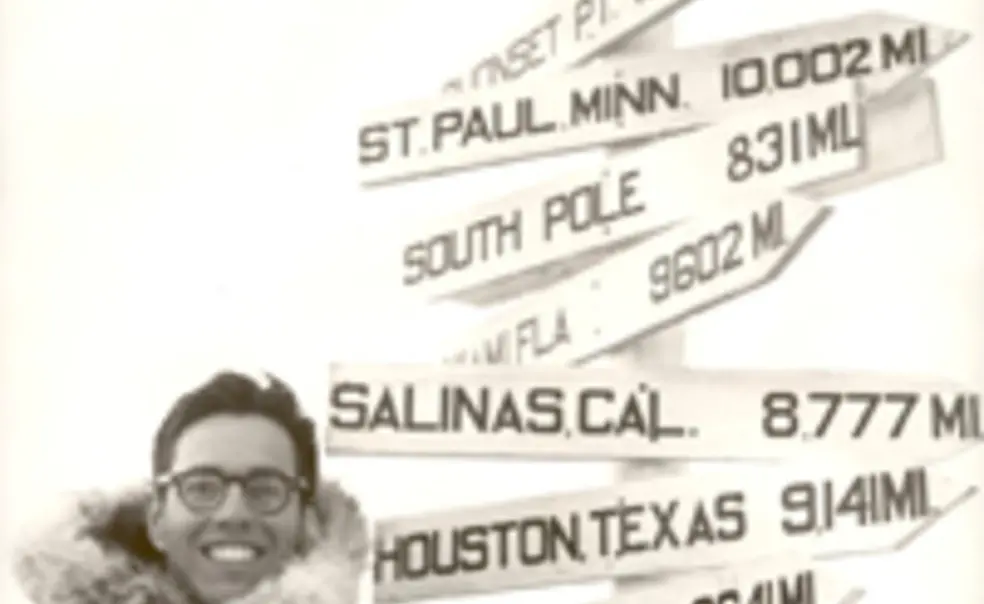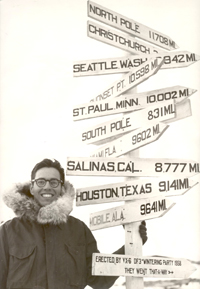McCabe '56 chronicles Antarctic adventure
New book: DeepFreeze! A Photographer’s Antarctic Odyssey in the Year 1959, by Robert A. McCabe ’56 (International Photography Publishers)
The author: McCabe was given his first camera at age five and quickly became an avid recorder of life’s adventures. His photographs have been featured in three other books: Greece: Images of an Enchanted Land 1954-1965, Weekend in Havana: An American Photographer in the Forbidden City, and On the Road: With a Rollei in the ’50s. His work has been exhibited in Europe and the United States. McCabe is chairman of the New York-based Pilot Capital Corporation, a private investment management company.
The book: In the summer of 1959, McCabe visited the Antarctic as a 24-year-old photojournalist on assignment for the New York Sunday Mirror Magazine. Traveling with other journalists, a group of scientists, and officers of the U.S. Navy, he chronicled his expedition to the South Pole in images and words. Among the 87 black-and-white photographs are those of the landscape, the buildings at the McMurdo Station outpost, a scientist “fishing” for specimens through a seal hole in the ice, and penguins. Through the photos and text, he gives a sense of life in the harsh but beautiful environment.
From the book: “It is strange living in this world of constant sunlight. We who come from the east normally associate cold with darkness. To have 24 hours of sunlight and blue sky and cold is a wonderful thing. Meals are served from five to seven, a.m. and p.m.; from eleven to one, a.m. and p.m. One can live on any cycle he wishes. … This morning at 1:30, I strolled around the camp taking photographs. This is a place where a photographer can never sleep in peace.”
Review: Publishers Weekly wrote: “In transcripts of McCabe’s recordings from the time, the photographer talks of the emptiness, solitude, and silence endured or embraced by some of the residents of the Ross Island base, but what he captures with his camera says it more immediately, and more elegantly. Though there are fascinating details of daily life in a very hostile environment, as well as reflections on the trips of earlier explorers. As climate change results in a shrinking Antarctica, this is a valuable record of what was.”














No responses yet